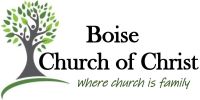What Does it Mean to be a New Creation?
Introduction
- Identity is the qualities, beliefs, personality traits, appearance, and/or expressions that characterize a person or group.
- “Identities tell us who we are and they announce to others who we are” (Peter Burke).
- Our identities guide behavior and inform how we are “supposed” to act.
- Who Am I? What Does it Mean to be a New Creation? (2 Corinthians 5:14-17).
I. New Motivation – Christ’s Love Compels Us (2 Corinthians 5:14; Ephesians 2:8-10).
II. New Purpose – We No Longer Live for Ourselves, but Christ (2 Corinthians 5:15; Ephesians 4:17-24; Colossians 3:1-17)
III. New Perspective on Christ – We No Longer View Christ from a Worldly Point of View (2 Corinthians 5:16; John 1:5; Acts 9:1-5; 1 Corinthians 2:12-14).
IV. New Perspective on Others – We No Longer View Others from a Worldly Point of View (2 Corinthians 5:16; Galatians 6:14-15; Ephesians 2:11-17).
V. New Hope – We Have Hope of a Resurrected Body and New Life in the New Heaven and Earth (2 Corinthians 5:17; 1 Corinthians 15:20-23; Revelation 21:1-5).
Conclusion/Applications
- We are God’s New Creation in Christ.
- We have been Changed and we must Live Out that Change – A New Motivation, Purpose, Perspective, and Hope.
- This shapes My Identity in Christ!
Sunday, I will conclude my series, Who Am I? My Identity in Christ. As humans we search for identity because we need to know who we are as we define, identify, and differentiate ourselves from others. Identities tell us who we are and they announce to others who we are. Our identities guide behavior and inform how we are “supposed” to act.
In our first lesson, we answered the question, “Who Am I” in terms of Psalm 8:1-4 and the song of the same name by Casting Crowns. We concluded that we are Finite, Known, Lost, Loved, Broken, Heard, Saved, and Yours (Belonging to God). For the purpose of abbreviation, we can summarize this as Loved, Forgiven, and Called.
In the second lesson, we explored Paul’s identity before and after his conversion to Christ (Philippians 3:1-15). We concluded that identity is not fixed, but it changes throughout life. We demonstrated how factors such as heredity, social groups, personal traits, actions, decisions, and beliefs all affect how we see ourselves and inform how we are “supposed” to act based on that identity. Paul’s identity was revolutionarily changed by his encounter with Jesus. His devotion to Christ led him to put that relationship before every other thing.
In the third lesson, we explored Paul’s understanding of what it means to be crucified with Christ. We concluded that, in baptism, our old, sinful, self died with Christ along with the guilt and penalty for sin. When we rose from the water, we embraced the newness of life he gives. From that point on we consider ourselves dead to the practice of sin and alive to the life Jesus wants us to live.
Last week, we discussed the purpose of God’s original creation, our divine vocation as human beings, the marring of God’s perfect creation by our sinful rebellion, and God’s loving work to restore us and the cosmos to his original intent.
Sunday we will conclude the series by discussing what it means to be a part of God’s restored creation.
Come join us! Joey

Leave A Comment